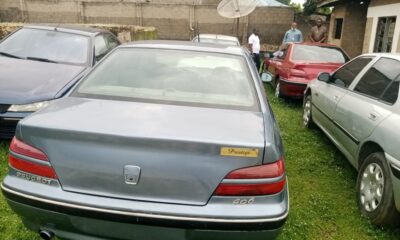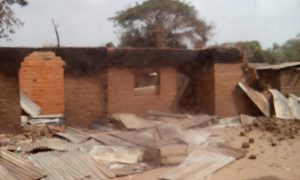idoma news
Otukpo federal road: A metaphor for Benue south’s decades of cursed opportunities (Photos)
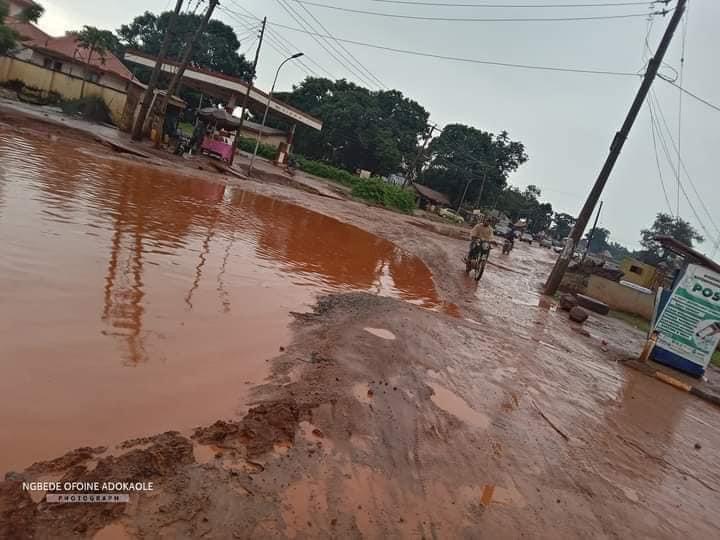
Benue South Senatorial District is one of the three senatorial zones in Benue State. Of the 23 local government areas in the state, the zone has nine, with the Idoma-speaking ethnic group inhabiting seven of these local government areas while the remaining two are populated by the Igede people. Otukpo, the traditional headquarter of the zone, hosts the palace of Ochi K’Idoma.
The ethnic groups of Benue South (both Idoma and Igede) can be said to be the “minority of the minority” of Nigeria’s ethnic groups. In elementary political science, a minority group is any social group that has little or no representation at the point of authoritative allocation of resources.
In Nigeria, there are Some ethnic groups that can produce at least 10 or even up to 20 House of Representatives members and at least two Senators. What Idoma can or has is a far cry―just one senator and three of four House of Representatives members from Benue South zone―and it clearly depicts its minority status.
The Idoma minority status is far worse in the state where the Tiv, also an ethnic minority in Nigeria, control two senatorial districts and ensure that the Idoma and Igede never come close to being governor of the state or Speaker of the State House of Assembly since the creation of Benue State some 46 years ago. This status quo shows clearly we are “minority of the minority.” A lot of ethnic Idoma, including myself, I am sure, feel the deep pains that come with being a member of a minority group in a country where strong politicians are stronger than the institutions.
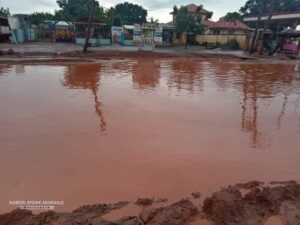
I might not be a very good student of the Idoma political history before 1999, but the chronicle of Benue South in the Fourth Republic is a narrative of opportunities and access to government power at the federal level―the point of authoritative allocation of resources. Yes, you can be a minority group by nature and be a majority group by inclusivity. Indeed, the Idoma of Benue State can be adjudged a majority by inclusivity in Nigeria’s Fourth Republic. But there is a sad irony to it.
In this Fourth Republic, the Idoma produced a national chairman of the Peoples Democratic Party (PDP) as a ruling party in the person of Chief Audu Ogbe. The national chairman of a ruling party has unhindered access to the President, Vice President, ministers and the National Assembly, and if he makes a particular project his priority, only God can stop him.
In this same republic, Benue South had Senator David Mark who, as the Senate President for eight years, was the No 3 citizen of this country. Still in this Fourth Republic, we have produced four ministers: Professor Jerry Agada, Minister of State for Education; Sen. Abba Moro, Minister of Interior; Sam Ode, Minister of State for Niger Delta and Chief Audu Ogbe, Minister for Agriculture and Rural Development. On the basis of this, the dominant argument has been that the Idoma enjoy a significant presence in the government at the centre since the Fourth Republic. But to what effect? A close look at the Nigerian budget from 1999 to date will indicate that the zone had attracted so many projects with so huge funds released but in reality, there is little to point to as developmental projects. The few that are visible are poorly done.
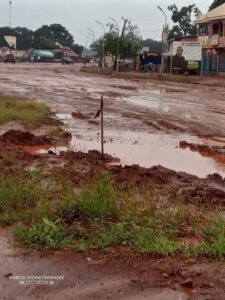
A pertinent example is Otukpo, the traditional capital of Benue South (a home to all of us in the zone) which is still wearing its colonial face. The Otukpo-Enugu federal road, a major artery of the township, has for a long time been an eyesore. Today, it has degenerated into a death trap for commuters. This same road was visited by Babatunde Raji Fashola―at the time the Minister of Power, Works and Housing―who came in a chopper and was welcomed by Chief Audu Ogbe, then Minister of Agriculture and Rural Development, and promised work will commence in earnest before the 2019 general election. History will not forgive those who put together such political propaganda to score cheap political advantage.
When the Ochacho Foundation offered to rehabilitate the road to, at least, make it decently motorable to ease the pain of commuters, the attention of the Ministry of Works was drawn to it by political antagonists whose objective was to truncate the initiative. Were it allowed to go through, many feared it would give the Ochacho brothers political leverage in Otukpo. The ministry in a letter to Ochacho claimed the road has been awarded to a contractor, Rockbridge Limited. Could the terms of contract include making sure the road goes from bad to worse?
Recently, Dr Victor Ojobo drew the attention of the public to the deplorable condition of the road. Since then, Comrade Abah Isaiah , Hon Ben Idah Nancy Abutu MinisterFor Laughter and other critical voices have joined the call for urgent attention.
As we go into the season of electioneering campaign, social and developmental issues will be pushed aside by high-tension politicking and the vitriol of partisan politics, but I think it is incumbent on all sons and daughters of Benue South to prioritise drawing attention to this eyesore of a road that has become a death trap.
#DURM
(Credit: Ekere A.A)








